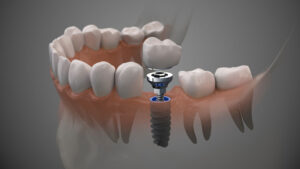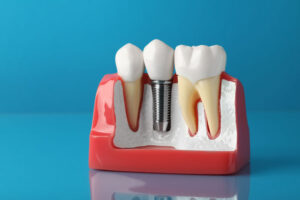
Dentists take time going through extra schooling and advanced education practicums to ensure they are equipped to do the procedures on patients. When seeking out a dental specialist, they have gone through all of the regular dental requirements as well as have completed extra training and education courses on their specialty. When it comes to your oral health, seeing the right type of professional for your needs is important.
For instance, going to a general dentist varies from seeing a periodontist. So why see the periodontist versus the general dentist? While both doctors care for your oral health, periodontists are specially trained and equipped to handle serious cases involving gum disease and periodontal disease. It is the job of a periodontist to ensure they can diagnose, prevent, and treat oral diseases and other conditions that may stem from gum disease.
Here is a deeper dive into why and when you should seek dental attention from a periodontist:
- Your Gums Are Bleeding and/or Swollen
- If you are experiencing soft tissue sensitivity, or they are bleed easily, it’s time to see a periodontist right away. All these symptoms are common indications of gum disease. The first stage of gingivitis can be treated, but once you pass that, it is essential to seek help immediately to eradicate the disease.
- Your Gum Line Is Receding
- It’s normal for the gum line to recede as you grow older, but if you notice your gum recession is more sudden and accompanied by any discomfort, you may have periodontal disease. Your periodontist can perform a thorough examination to confirm your diagnosis and provide you with a recommended personalized treatment plan.
- You Have Lost a Tooth
- If your teeth feel loose or if you have lost a tooth due to periodontal disease, you may be a good candidate for dental implants. Keep in mind that your periodontist will need to treat your gum disease prior to placing implants to ensure they stay secure and your mouth remains healthy.
Periodontists are the right choice for you if you are experiencing any of the aforementioned, or if you begin experiencing oral-systemic disease, such as diabetes. Contact your dental specialist if you have any more questions or would like to be provided more information. If you need any dental attention, always schedule an appointment prior to your condition worsening.






